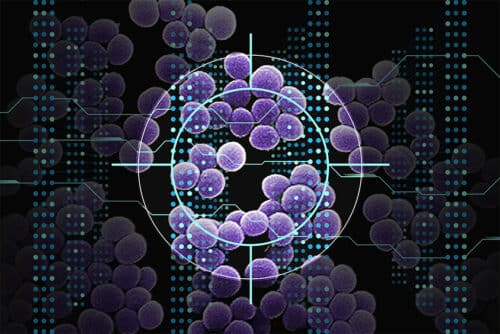MIT researchers use AI to discover new compounds, significantly reducing MRSA in lab and mouse models and promising a breakthrough in antibiotic development.

MIT researchers have employed deep learning, a form of artificial intelligence, to identify a new class of compounds capable of eliminating a drug-resistant bacterium responsible for over 10,000 annual deaths in the United States.
The researchers demonstrated that the identified compounds effectively eliminate methicillin-resistant Staphylococcus aureus (MRSA) in both lab dishes and two mouse models of MRSA infection while exhibiting minimal toxicity against human cells, thus making them promising drug candidates. A significant breakthrough of the study was the researchers’ ability to discern the data types the deep-learning model utilized to predict antibiotic potency. This insight could aid in designing even more effective drugs than those currently identified by the model.
Explainable predictions
The researchers initiated their study by training a deep learning model with an extensively expanded dataset created by testing around 39,000 compounds for their antibiotic activity against MRSA. This dataset, along with detailed information on the chemical structures of these compounds, was fed into the model. To understand the model’s prediction mechanisms, they adapted the Monte Carlo tree search algorithm, previously instrumental in enhancing the explainability of other deep learning models like AlphaGo. This algorithm enabled the model to provide an estimation of each molecule’s antimicrobial activity and insights into which molecular substructures might be responsible for this activity.
Potent activity
The researchers enhanced their drug discovery process by training three additional deep-learning models to predict the toxicity of various compounds to different human cell types. Merging these predictions with antimicrobial activity assessments, they narrowed down potential drug candidates that can effectively kill microbes with minimal human harm. They screened approximately 12 million commercially available compounds and identified promising candidates from five chemical classes against MRSA. Subsequent lab tests on about 280 selected compounds led to the discovery of two particularly effective antibiotics from the same class. In mouse models of MRSA skin and systemic infections, these compounds significantly reduced MRSA populations.
The nonprofit aims to analyze these compounds’ chemical properties and clinical potential while Collins’ lab develops new drugs and searches for compounds against other bacteria.







